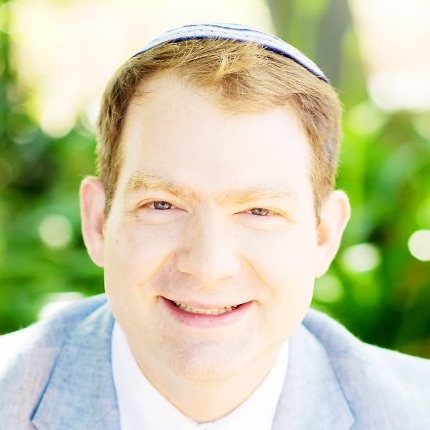Religion
Mystery of the milchik festival
When you ask a Jewish six-year old what their favourite festival is, you will probably get the answer that it’s Purim. It’s definitely the most fun – dressing up, giving, and receiving gifts, making noise when you hear Haman’s name.

RABBI SAM THURGOOD
If you ask a parent whose children are overseas but come home once in a while for Yom Tov, it’s likely that Pesach is their favourite chag (holiday). Family time together around the seder table, sharing old memories, and creating new ones.
A nature lover? Surely Sukkot – a festival spent outdoors in which plants and fruits play such a prominent role.
Ask a vegetarian, and you will probably get the answer that it’s Shavuot – a festival at which suddenly, everywhere they go, meals are milchik (dairy) and they can munch on the entire spread.
Why is the latter the case? The general practice in the Jewish world is to have meat meals over Yom Tov, based on the Rambam who said (Hilchot Yom Tov 6:18) that joy on Yom Tov is experienced best through meat and wine. However Rabbi Yosef Karo, the author of the Shulchan Aruch, disputes this, and does not record this as halacha.
I tell my community that on Yom Tov, they should eat what they and their families find the most delicious, but on Shavuot, the Jewish world goes milchik.
My Rabbi and teacher, Rabbi Azriel Chaim Goldfein, taught us that in Judaism, there are things that are significant and important, and others that are not so much. From the perspective of halacha (Jewish law), having dairy on Shavuot is certainly not so important.
If someone prefers meat, they can munch on biltong from the beginning of the festival to the end without taking a bite of cheesecake, and not feel that they have disrespected the festival. However, every custom of Israel has deep meaning and wisdom, and this one is no exception.
The most straightforward explanation for our love of cheesecake on Shavuot is that given by the Mishnah Brura. He explains that when we began receiving the laws of the Torah, we realised all that was involved in koshering meat: shechting (slaughtering), removing the forbidden fats, salting, and so forth. The easier option for our ancestors around Mount Sinai was to avoid meat altogether.
The Ramo – Rabbi Moshe Isserles – offers more complex reasoning. The special offering in the Temple over Shavuot was two loaves of bread. If we begin our meal with milk, and then switch over halfway through to meat, we must change all of the cutlery and crockery. More than that, we need to wash our hands, clean our mouths, and start a new loaf of bread in order to avoid inadvertent mixing of milk and meat.
The end result is that we will be eating from two different loaves of bread during the Shavuot meal – milk at the beginning and meat at the end. The difficulty of this approach is the risk of making a kashrut mistake. This is why my shul doesn’t follow this for our communal dinner, although for private homes, it’s a great Shavuot experience.
On a deeper level, the Sfat Emet, the Chassidic Rebbe of Ger, explains that when we reach the highest level of purity on Shavuot, after all of the internal work that we have done during the Omer, we reach the source from which both purity and impurity come.
This is milk, the source and beginning of life, and reminds us that Torah too is our source of life and nourishment, from which all else in our life flows.
In closing, I would like to offer my own explanation: the Torah was given in the desert to teach us that anyone, anywhere, can accept Torah, and forge a meaningful and holy relationship with Hashem (G-d).
But we were never intended to stay at Mount Sinai forever. Accepting the Torah and making it a part of us, we were destined to make our way as a nation to the land flowing with milk and honey, to Israel, where we could build a Torah society, and develop as a holy nation.
Torah speaks to each of us, but our own personal acceptance of it is not the end – we must flow from there to building communities and societies infused with goodness and holiness. Chag Sameach!
- Rabbi Sam Thurgood is the rabbi of Beit Midrash Morasha at Arthurs Road in Cape Town.